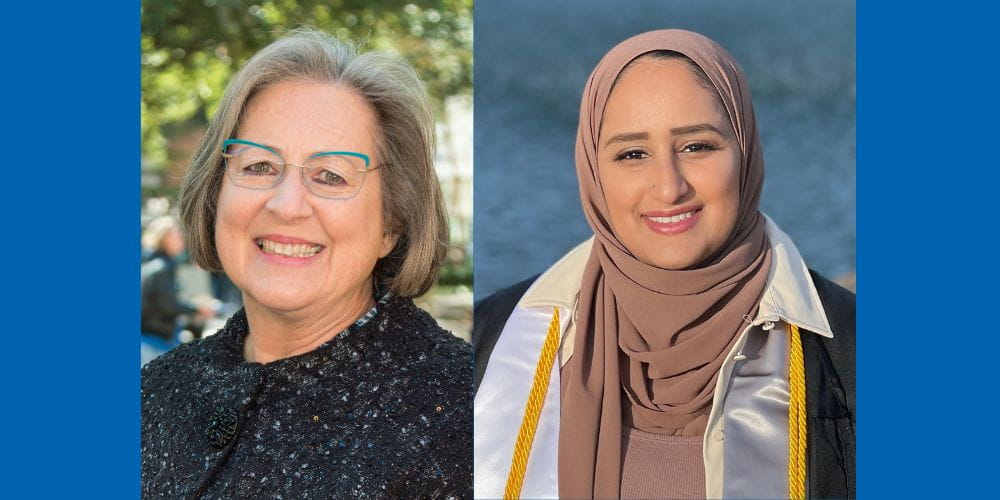
Last summer, when an undergraduate public health student at the University of Texas at Arlington asked to be connected with an alumnus in his field, it sparked something bigger: a chance for current UTA students to get a first-hand look at what the field of public health looks like. as through other Mavericks.
Demand inspired the creation of the BS in Public Health Mav Mentor/Mentee program. Awareness began last fall, when Rebecca Garner, a clinical associate professor at the College of Nursing and Health Innovation, and a group of UTA student interns developed a social media plan calling for mentors to join and connect with the next generation of public health professionals.
“The whole message is, ‘We’re asking for your time to support undergraduates who are where you were a few years ago,'” said Garner, who is also director of the Bachelor of Science in Public Health program.
The first group of mentors includes graduate students in public health who received leadership training through Garner’s professional development class, where they practiced mentorship and interview skills. Students from two of Garner’s public health classes are the first group of mentees under the pilot program, which supports about 75 public health students.
Garner said she hopes the program will eventually expand to support all UTA undergraduate majors seeking mentorship resources. Part of his inspiration was the struggle some of his young students faced during the COVID-19 pandemic to connect with public health professionals.
The program also includes working with the Career Development Center, whose staff have helped facilitate alumni relationships, while offering classroom workshops and advice on creating resumes and cover letters.
Online student Aleya Abdo, a UTA senior, was an intern in the program. She calls her experience as a public health student rewarding, but acknowledges that without the on-campus component, it can be difficult to meet people. She says the mentorship program is a chance to bridge that gap.
“It gives you the opportunity to network, share experiences and learn about different career paths,” Abdo said. “Public health is so broad. Mentoring can help people get an idea of what a job might look like for them.
Susan Carrillo, an online student who graduated from UTA with her degree in public health in December, interned under Garner. She became interested in helping to make the program possible by drawing on some of her own student experiences.
“It was hard sometimes trying to imagine what life would be like outside of college,” Carrillo said. “I feel like that’s what made me really want to help create the program.”
Carrillo plans to pay it forward as the program’s mentor. She can share her experiences as a Case Support Counselor with YMCA International Services in Houston, where she helps unaccompanied immigrant minors become self-sufficient now that they are in the United States.
Garner envisions the pilot program serving as the foundation for a longer-term alumni mentorship program that leverages the abilities of UTA students.
“Our students have so much potential, but sometimes they don’t recognize it or haven’t been told they have it,” Garner said. “By giving them the opportunity to talk about their future career paths and just being able to ask questions in a safe space, students will feel much more comfortable.”
